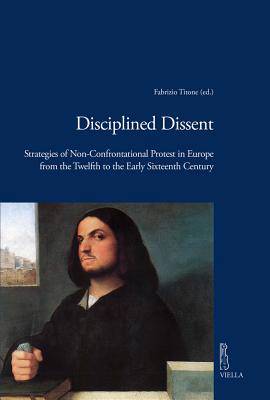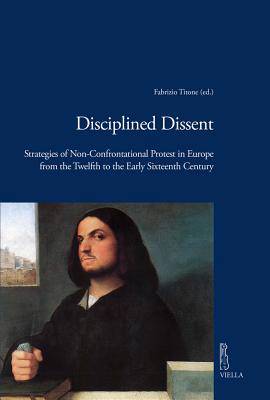
Bedankt voor het vertrouwen het afgelopen jaar! Om jou te bedanken bieden we GRATIS verzending (in België) aan op alles gedurende de hele maand januari.
- Afhalen na 1 uur in een winkel met voorraad
- In januari gratis thuislevering in België
- Ruim aanbod met 7 miljoen producten
Bedankt voor het vertrouwen het afgelopen jaar! Om jou te bedanken bieden we GRATIS verzending (in België) aan op alles gedurende de hele maand januari.
- Afhalen na 1 uur in een winkel met voorraad
- In januari gratis thuislevering in België
- Ruim aanbod met 7 miljoen producten
Zoeken
Disciplined Dissent
Strategies of Non-Confrontational Protest in Europe from the Twelfth to the Early Sixteenth Century
Maria Asenjo-Gonzalez, Peter Coss, Jeff Fynn-Paul, Christina Lutter, Angela Munoz Fernandez, Alma Poloni, Barbara H Rosenwein, Fabrizio Titone, John Watts
Hardcover | Engels
€ 93,45
+ 186 punten
Omschrijving
Inspired by current debates around political confrontation and the exercise of power, Fabrizio Titone offers an interpretation based on the concept of disciplined dissent. This interpretation is centred on the notion of diffused power and is designed to transcend the binary distinction consensus/resistance. The aim is to identify the conservative process involved in mounting a critique, a protest, through which those who object may have intercepted and then deployed on their own account the cultural repertoire of those in a position of authority. This was with a view to obtaining a hearing, or even influencing the activities of the government and decentering the exercise of power. The essays collected here take as their theoretical point of departure the concept of disciplined dissent. In order to ascertain how adaptable the latter is, the decision was taken to include studies relating to wholly distinct political contexts. Contributions by scholars from different backgrounds shed light upon different circumstances prevailing in continental and non-continental medieval Europe. The aim is to offer a broad spectrum of analyses on political confrontation, the formulation of critiques and the attainment of spaces for participation by means of non-violent protest.
Specificaties
Betrokkenen
- Auteur(s):
- Uitgeverij:
Inhoud
- Aantal bladzijden:
- 258
- Taal:
- Engels
Eigenschappen
- Productcode (EAN):
- 9788867287239
- Verschijningsdatum:
- 30/10/2016
- Uitvoering:
- Hardcover
- Formaat:
- Genaaid
- Gewicht:
- 511 g

Alleen bij Standaard Boekhandel
+ 186 punten op je klantenkaart van Standaard Boekhandel
Beoordelingen
We publiceren alleen reviews die voldoen aan de voorwaarden voor reviews. Bekijk onze voorwaarden voor reviews.









